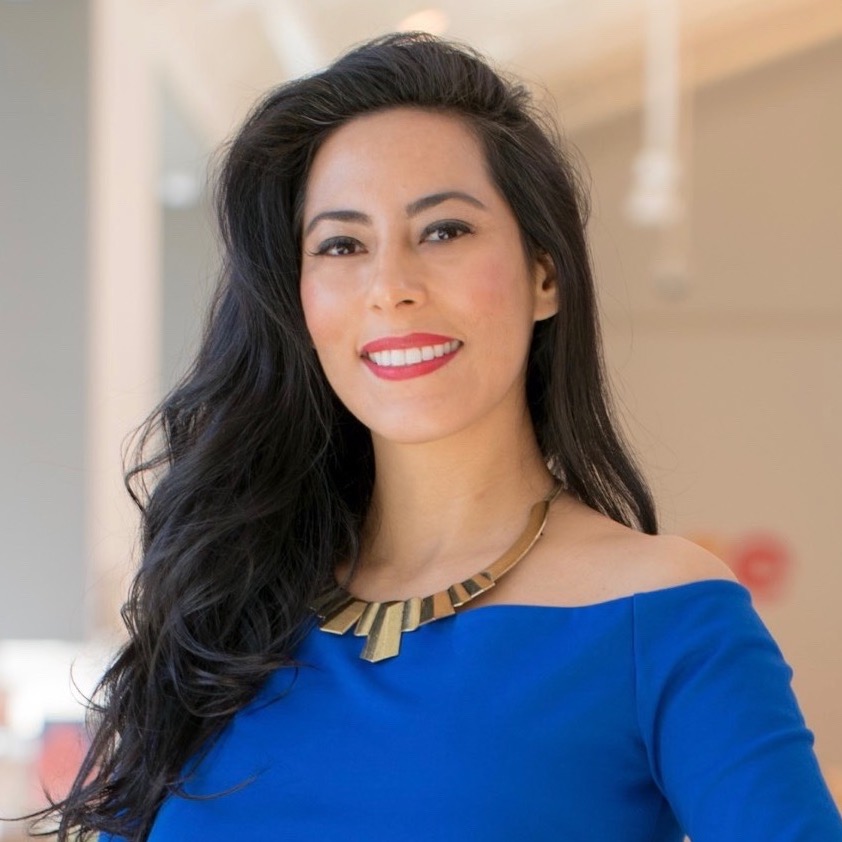
A look at the website for mindfulness conference Wisdom 2.0 paints a certain picture of the gathering and for whom it is designed: Splashed on the homepage are images of Tibetan monks creating sand art, sage-like speakers imparting wisdom to large crowds, people assembled in yoga poses, and group hugs. Yes, group hugs.
While a certain dose of new-age spirit can be an asset at an event like this, you don’t have to be a meditation expert or even a yogi to appreciate the messages at Wisdom 2.0. The self-proclaimed premier gathering for “exploring living mindfully in the digital age,” Wisdom 2.0 offers a forum to learn, share and experience the benefits of conscious thought in everyday action. Especially given today’s times, this mindset is valuable, if not downright necessary, to create positive social impact and build a sustainable future.
A stream running through this year’s conference was an exploration of the role of mindfulness in bridging gaps and moving forward beyond political divisiveness. The following session titles shed light on what was discussed: Race, Justice, and Mindfulness: Addressing Society’s Pain, Inequity, and Disenfranchisement Through the Lenses and Practices of Mindfulness, Wisdom, and Compassion; A Manifesto for Challenging Wisdom in Challenging Times: Guidance for Cultivating a Fierce Heart; Exercising Leadership and Practicing Compassion in Politically Charged Times; and Inquiry, Politics, and The Mind.
In a series of conversations presented on the main stage, speakers shared words of wisdom on how to take action and practice compassion in our current sociopolitical climate. Here are a few key teachings from those talks.
Everybody deserves to be heard
Whether in a boardroom, classroom or picket line, everybody deserves the opportunity to express their opinions — whether you agree with them or not. This is one of the main lessons Byron Katie, renowned self-inquiry author and teacher, imparted to the Wisdom 2.0 crowd.
“I wanted to change the world,” Katie shared with Wisdom 2.0 attendees, “so I questioned my judgements, beliefs, and assumptions about the world, and the world changed as my mind made the shift.”
If you see the world a certain way and oppose another person’s worldview, the answer is not to shut them down; rather, allow them to speak their piece and look at what needs to change within you to make peace. As Katie put it, “Change takes consciousness, leadership and goodness.”
Wisdom starts from within
Challenging times are often reflected in social media feeds, and what we’re all seeing in our feeds these day is nothing less than stressful. It’s easy to get overwhelmed and enter a reactive or defensive stance, but mindfulness teacher Jon Kabat-Zinn reminds us: “Social justice is at the heart of mindfulness, and we must reawaken to the need for compassion in all areas of our lives.”
In other words, compassion and mindfulness should not be relegated to spare moments in a day on a yoga mat or in a dark, quiet room. Space for mindfulness can be equally held at work and with friends, family and strangers.
Integrity is reflected in action
All of this, of course, is easier said than done, but actions do speak louder than words. Whether your values compel you to work at a purpose-driven organization, meet with your local elected officials, protest at airports, or march on the streets, what matters most is that these actions reflect a deep level of compassion and awareness of others.
Laney Whitcanack, CEO of the non-partisan nonprofit organization Coro Northern California, shared the following:
“You can choose to 1) fight, 2) ignore, or 3) create connection. On an individual level, you have to be brave to ask for permission to seek to understand others and undertake this kind of bridge-building. My question is: How can we create spaces that are trans-partisan so that all people know how to get engaged with compassion?”
In the same session on exercising leadership and practicing compassion in politically-charged times, Rhonda V. Magee, a professor at the University of San Francisco School of Law, added:
“We really need each other to have a broad perspective of the truth and chart the way forward. Having love and compassion is what it takes to connect under these times.”
In a world where everyone lives in their own world and gets to define their own truth, social justice can only thrive when inclusivity survives. Left, right or middle of the road, positive outcomes can only come about if all sides approach dialogue with mindfulness. That is wisdom that stands — regardless of where you stand on the political spectrum.

Nayelli is the Founder & CEO of CreatorsCircle, a resource hub that connects diverse youth with opportunities to create a life of purpose and impact. A trained journalist with an MBA, she also keeps the pulse on sustainable business and social impact trends and has covered these topics for a variety of publications over the past 15 years. She’s a systems thinker who loves to learn, share knowledge and help others connect the dots.














